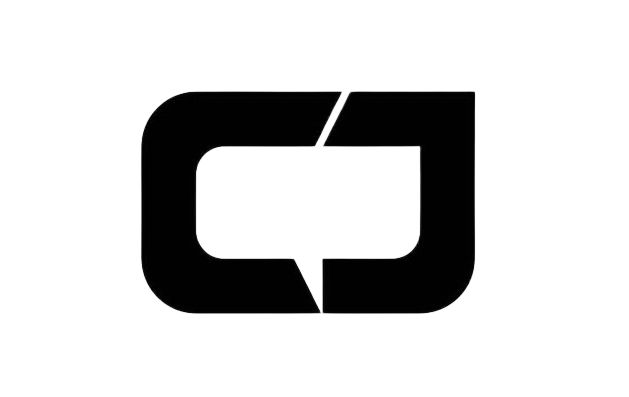
Unleashing Creativity with Figma: The Ultimate Design Tool
In the fast-paced world of digital design, where collaboration and efficiency are paramount, designers are constantly seeking tools that not only streamline their workflows but also foster creativity and collaboration. One such tool that has been making waves in the design community is Figma.
Figma is more than just a design tool; it’s a collaborative interface design tool that enables teams to create, prototype, and collaborate in real-time. With its cloud-based approach, Figma has revolutionized the way designers work together, breaking down barriers and allowing for seamless collaboration regardless of geographical location. Let’s dive deeper into what makes Figma the ultimate design tool.
Unlocking the Potential of FigJam AI:
Unlocking the Potential of FigJam AI:
One of the standout features of Figma is its real-time collaboration capabilities. Traditional design tools often require designers to work on local files, leading to version control issues and time-consuming processes when sharing designs with team members. Figma eliminates these hurdles by allowing multiple users to work on the same file simultaneously. Whether you’re designing a website, mobile app, or any other digital interface, team members can collaborate in real-time, making edits, providing feedback, and iterating on designs together.
Cloud-based Design
Gone are the days of emailing design files back and forth or dealing with cumbersome version control systems. With Figma, all your designs are stored in the cloud, accessible from anywhere with an internet connection. This not only ensures that everyone is working on the latest version of the design but also allows for seamless transitions between devices. Whether you’re working from your desktop, laptop, or even a tablet, you can pick up right where you left off without skipping a beat.
Powerful Prototyping
Design is not just about creating static visuals; it’s about crafting experiences. Figma’s prototyping capabilities empower designers to bring their designs to life with interactive prototypes. From simple click-through prototypes to more complex interactions, Figma allows designers to create and test their designs without ever leaving the platform. This not only streamlines the design process but also enables designers to gather valuable feedback early on, ensuring that the final product meets user needs and expectations.
Design Systems and Component Libraries
Consistency is key in design, especially when working on large-scale projects or with cross-functional teams. Figma’s support for design systems and component libraries makes it easy to maintain consistency across designs and ensure a cohesive user experience. Designers can create reusable components and design tokens, making it simple to propagate changes across multiple designs. This not only speeds up the design process but also ensures that your designs are always on-brand and up to date.
Integration with Third-party Tools
In today’s digital landscape, designers often rely on a myriad of tools to bring their designs to life, from project management platforms to developer handoff tools. Figma integrates seamlessly with a wide range of third-party tools, allowing designers to incorporate Figma into their existing workflows without skipping a beat. Whether you’re syncing designs with Jira, collaborating with developers using Zeplin, or conducting user testing with UserTesting, Figma plays nice with your favorite tools, ensuring a smooth and efficient design process from start to finish.
key features of Figma:
Real-Time Collaboration: Multiple users can work on the same design file simultaneously, enabling seamless collaboration regardless of geographical location.
Cloud-Based Design: Figma stores design files in the cloud, allowing for easy access from any device with an internet connection. This ensures that everyone is always working on the latest version of the design.
Powerful Prototyping: Figma offers robust prototyping tools that enable designers to create interactive prototypes directly within the platform. From simple click-through prototypes to more complex interactions, designers can bring their designs to life and gather valuable feedback.
Design Systems and Component Libraries: Figma supports the creation of design systems and component libraries, making it easy to maintain consistency across designs. Designers can create reusable components and design tokens, ensuring a cohesive user experience and speeding up the design process.
Vector Editing Tools: Figma provides a wide range of vector editing tools that allow designers to create and manipulate shapes, paths, and text with precision.
Version History: Figma automatically tracks version history, allowing designers to review previous versions of their designs and revert to earlier iterations if needed.
Commenting and Feedback: Designers can leave comments directly on specific elements of a design, facilitating collaboration and feedback from team members and stakeholders.
Real-Time Previews: Figma offers real-time previews of designs, allowing designers to see how their designs will look and behave on different devices and screen sizes.
Plugins Ecosystem: Figma has a thriving ecosystem of plugins that extend its functionality. From design utilities to integrations with third-party tools, plugins enhance the capabilities of Figma and cater to the specific needs of designers.
Developer Handoff: Figma simplifies the handoff process between designers and developers by providing tools for generating code snippets, design specs, and assets. This streamlines the transition from design to development and ensures that developers have everything they need to bring designs to life accurately.
Team Libraries: Figma allows teams to create and maintain libraries of reusable assets, such as icons, colors, and components, ensuring consistency across projects and facilitating collaboration among team members.
Offline Mode: While Figma is primarily a cloud-based tool, it offers an offline mode that allows users to continue working on their designs even without an internet connection. Changes made offline are synced to the cloud once the user is back online.
In conclusion, Figma is not just a design tool; it’s a game-changer for designers and design teams alike. With its real-time collaboration, cloud-based approach, powerful prototyping capabilities, support for design systems, and seamless integrations, Figma empowers designers to unleash their creativity and bring their ideas to life like never before. Whether you’re a freelance designer, a member of a small design team, or part of a large enterprise organization, Figma has something to offer for everyone. So why wait? Embrace the future of design with Figma today.
About Us
Saasandb2bsolutionhub, the go-to destination for promoting Brands and software Recommendations. we have partnered and promoted many brands on different affiliate marketplace. our years of experience in affiliate marketing has brought a significant increase in both leads, sales and traffic to the brands we promote
Copyright © 2024 Saasandb2bsolutionhub International. All rights reserved.
